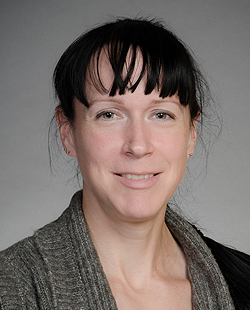
Treatment: Evaluation

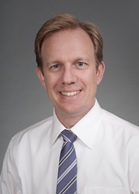
Ryan Kimmel
Personal Statement
I am the Psychiatry Chief of Service for both campuses of the University of Washington Medical Center. I also direct our Psychiatric Consultation and Telepsychiatry Program. My clinical focus is on patients who are hospitalized with simultaneous psychiatric and medical issues. Academically, I most often teach psychiatry trainees about psychopharmacology for refractory mood, anxiety, and psychotic disorders.

Mark Duncan
Personal Statement
I have pursued a career at the intersection of mental health and primary care, training in both family medicine and addiction psychiatry. I currently practice in various integrated care settings as a consulting psychiatrist and in the outpatient adult psychiatry clinic. I am the co-medical director for the University of Washington Psychiatry and Addiction Case Conference (UW PACC), a weekly online learning collaborative to help community providers across the state improve their psychiatric and addiction clinical skills. My area of interest is focused on improving addiction and psychiatric treatment to primary care settings. I also spend a significant amount of time training both family medicine and psychiatry trainees and fellows on integrated treatments for substance use disorders.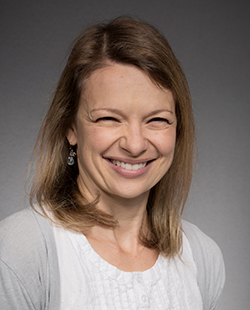
Amelia Dubovsky
Personal Statement
I am a Clinical Assistant Professor in the Department of Psychiatry and Behavioral Sciences at the University of Washington. I received my MD from New York University and completed my adult residency at the Harvard Massachusetts General Hospital/McLean Hospital program where I was chief resident. I then went on to complete a fellowship in psychosomatic medicine at the University of Washington. I am currently on faculty at Harborview Medical Center on the inpatient psychiatry consult service. I have a longstanding interest in the intersection between medicine and psychiatry, and am the author of numerous published articles on topics ranging from the neuropsychiatric effects of steroids to managing borderline personality disorder in the primary care setting. I have a particular interest in the use of electroconvulsive therapy, including in the treatment of catatonia. I am currently involved in research projects in conjunction with the division of nephrology and the neurosurgery department. In addition to my clinical and research interests, I am also an associate program director for the UW Adult Psychiatry Residency at Harborview Medical Center.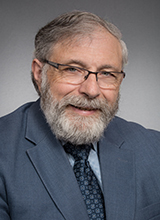
Christos Dagadakis
Personal Statement
I have had a career long interest and focus on crisis and stress management, and assessment of disability. My 19 years as director of emergency psychiatry initially at UW Medical Center and later Harborview Medical Center and current work as an attending psychiatrist and past 20 years as Medical Director of the Harborview Mental Health Services intake and Brief Intervention Service have been where I have worked with families and individuals with acute stress , mental illness , and/or both together( usually these are together) have been my source of knowledge and practical experience. Thirty one years of doing consultation and assessments about disability have given me an appreciation for the severe impact of mental disorder on function and relationships. Teaching stress management classes and doing workshops and consultation with multiple companies and organizations have focused me on efforts to prevention whenever possible. Initial prevention is almost always preferable to needing to do stabilization and reconstitution and subsequent preventive efforts. in summary, prevention efforts whether initially or after crisis have been and are a major focus and value for me. 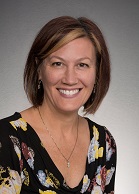
Heidi Combs
Personal Statement
Early in my training it became clear that intense pathology transfixed me so inpatient psychiatry was a natural fit. My specific area of expertise within psychiatry is care of the acutely ill hospitalized psychiatric patient. I have also developed clinical expertise in the diagnosis and management of Catatonia. In addition to clinical care, education is another area of interest. I love to teach and it has been the focus of my career. I am intimately involved in the education of psychiatry residents and am a founding faculty member of the Clinician-Teacher Pathway for our residency program. In addition to teaching medical students and residents, I regularly educate primary care providers on detection and treatment of psychiatric illnesses in primary settings. I assumed the role of Vice Chair of Education in 2020 and in that role I oversee all educational efforts for our department.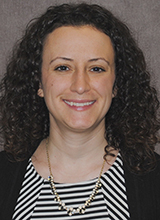
Laurel Pellegrino
Personal Statement
I am a psychiatrist at the UW Outpatient Psychiatry Clinic (OPC) on Roosevelt, where I see patients for consultation, medication management, and psychotherapy, both individually and with psychiatry residents. I see patients with mood disorders, anxiety disorders, trauma, and complex trauma. I also help answer a consultation line for providers in the state of Washington who have questions about psychiatric medications during the perinatal period. I serve as an Associate Program Director in the Psychiatry residency, where I help oversee the curriculum. My areas of interests are resident education, psychodynamic psychotherapy, outpatient psychiatry, perinatal psychiatry, and diversity, equity, and inclusion.
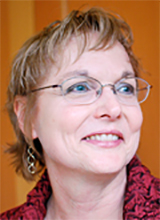
Heather Carmichael Olson
Personal Statement
I am a psychologist who carries out research, provides community education to a broad range of audiences, trains postgraduate students, works on public policy– and has served as a clinician with children and families for many years. My main interests are fetal alcohol spectrum disorders (FASD), early childhood mental health, and interventions for children born prenatally exposed to alcohol and other drugs and their families. My research is currently based at the Seattle Children’s Research Institute, but I also work in collaboration with UW researchers– and scientists at the University of Rochester in New York and multiple other academic institutions. A main research focus has been the Families Moving Forward (FMF) Program, a family-focused FASD intervention, now being disseminated primarily in the USA and Canada. The FMF Program is also now being translated into a mobile health application, called FMF Connect, for even broader use. Through Seattle Children’s, I co-direct a pilot service focused on assessment and short-term consultation for youth with prenatal substance exposure (including alcohol), and their families. I also offer mental health services to a broad range of young children and develops research focused on early childhood mental health. Over the years, beyond research and clinical work, I have been able to work toward change in national US public policy, collaborate with Indigenous communities and researchers in remote Northwestern Australia, and train dedicated young professionals in psychology and psychiatry. I am grateful for these remarkable career opportunities… and the chance to meet so many resilient and inspiring families. Note that you can only reach me through my Seattle Children’s email, at: heather.carmichaelolson@seattlechildrens.orgTaylor Black
Personal Statement
I came to the UW to train in psychosomatic medicine and to work in a complex comorbid population as a clinician and a teacher. Most medical and surgical patients served at Harborview will have psychosocial needs; often these are as critical to their recovery and health as somatic health problems. Working across disciplines is challenging but also clinically valuable, intellectually stimulating, and exciting to our trainees when we can address care in a more integrated and holistic manner. I like to focus my academic work on defining what the needs of Harborview’s clinical population are, and how our busy psychiatric consultation services can be best utilized to promote the health of our patients and our institutions.
